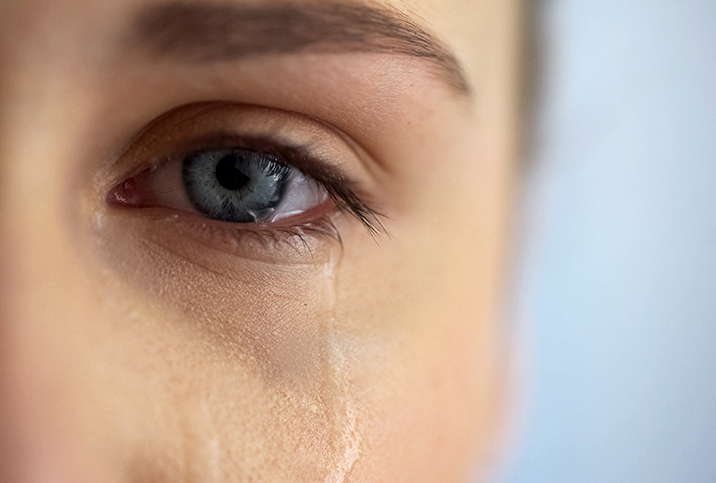How Does Having Bipolar Disorder Impact Sex?

More than 2 million Americans live with bipolar disorder. This condition causes an individual to experience sharp changes in moods, often back and forth between a manic state and a depressed state.
During manic episodes, a person feels "high" and energetic; when in a depressed state, they experience sadness, fatigue and difficulty concentrating. These sudden shifts may also coincide with changes in sexual desire and sexual function.
Bipolar disorder and hypersexuality
Hypersexuality—sometimes called compulsive sexual behavior—can manifest as a symptom of mania. It's characterized by an excessive preoccupation with sex that is hard to control. Hypersexuality is also marked by libido (sex drive) suddenly and frequently spiking. It can negatively affect a person's health, job and relationships. If someone with bipolar disorder is in a close relationship, their partner may have difficulty keeping up with the increased sex drive during manic episodes.
Some psychiatrists consider sex addiction to be a form of hypersexuality. While hypersexuality and sex addiction are not inherently a part of a manic state, it's important to recognize the signs.
Characteristics of hypersexuality and sex addiction may include:
-
Anonymous sex with multiple partners
-
Excessive masturbation
-
Compulsive sex, sometimes with strangers
-
Habitual exhibitionism
-
Habitual voyeurism
-
Increased viewing of pornography
-
Inappropriate sexual touching
-
Numerous affairs outside a monogamous relationship
A 2019 study published in the journal BMC Psychiatry found people with bipolar disorder to be more prone to risky sexual behaviors. These are characterized as, over the previous year, having intercourse with two or more partners, having unprotected sex, having sex after drinking alcohol, and paying for sex. Almost half of the 424 bipolar participants in the study reported risky sexual behavior.
Bipolar disorder and hyposexuality
During a depressive episode, people with bipolar disorder may lose all interest in sex. This can lead to hyposexuality, the opposite of hypersexuality. When depressed, bipolar patients may lose self-confidence, feel unattractive and forgo grooming and bathing. Feelings of inadequacy and worthlessness can interfere with sexual intimacy and create a rift in a bipolar person's relationships.
Common symptoms of hyposexuality include:
-
Total lack of interest in sex
-
Feeling unattractive and undesirable
-
Frustration and confusion
-
Disinterest in hygiene
-
Feeling vulnerable or worthless
-
Fatigue
-
Trouble concentrating during sex
In general, hypersexuality and hyposexuality in bipolar patients can be managed. If you have bipolar disorder, medication therapy is essential; it's critical that you take your prescription medications and follow the treatment plan from your doctor. Mood stabilizers, including Depakote, lithium and Lamictal, have been shown to be effective in treating bipolar disorder. However, psychiatric medications can come with side effects, including those that impact sex such as weight gain and sexual dysfunction. Make sure to talk to your doctor about any concerns you have while you are taking medication.
Bipolar disorder & ED
According to a study in the Journal of Sexual Medicine, men who have recently been diagnosed with bipolar disorder are at a greater risk for erectile dysfunction (ED) than men without the condition. The study looked at the relationship between ED and bipolar disorder among a group of men in Taiwan.
Scientists identified 5,150 men, ranging in age from 15 to 65, with newly diagnosed bipolar disorder. The study found 2.12 percent of the group of men with bipolar disorder had ED, compared to 0.95 percent of the control group. The rate remained greater for the group of bipolar men even after factoring in the presence of other medical conditions, including kidney disease and high blood pressure.
What you can do about it
If you are in a relationship or married to someone with bipolar disorder, keep in mind the impact that bipolar disorder has on them and their sex drive. Many couples find that sex therapy and counseling help them to work through difficulties.
If you have bipolar disorder, getting it under control is the first step toward improving your sex life. Be sure to tell your doctor all your symptoms and sexual issues, and then be prepared to work together to find the right treatment for you.


















